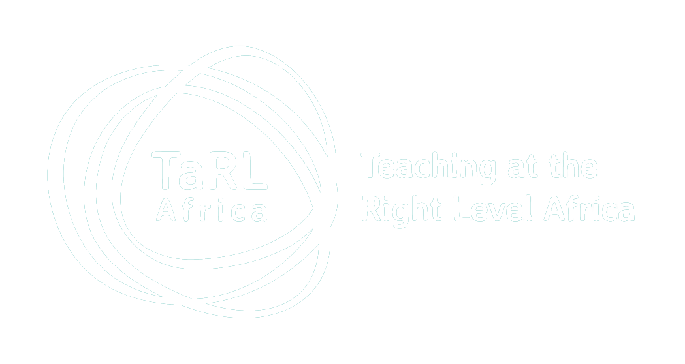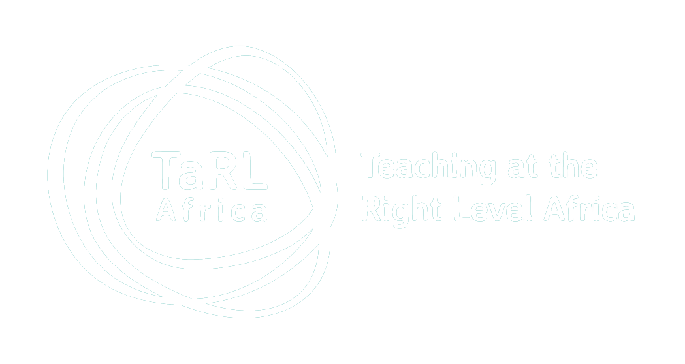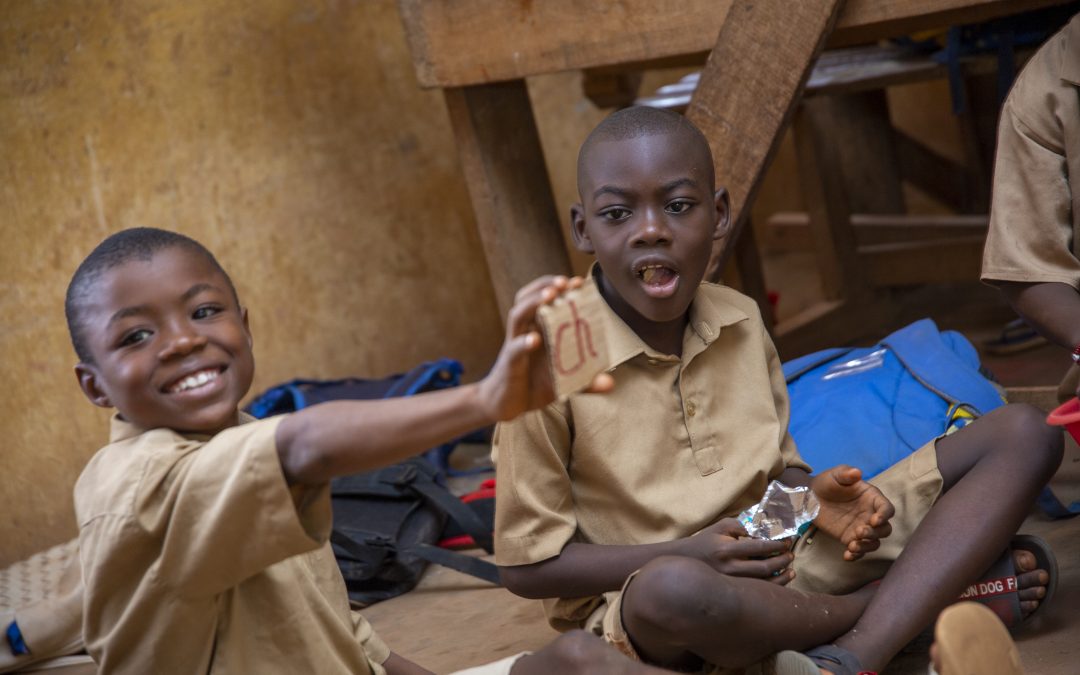
Children during a TaRL session in Côte d’Ivoire. Photo Credit: TaRL Africa
To download the end-of-the-year updates, click here.

TaRL programming in Sub-Saharan Africa reached over a million children with encouraging results across the board!
We worked together with several partners across 12 countries learning together and devising strategies to accomplish the common goal of foundational skills for all.
The intermittent school closures due to the pandemic exacerbated an already existing learning crisis. As restrictions began to ease this year, TaRL Africa worked quickly to support new and existing partners across the continent to use the Teaching at the Right Level (TaRL) methodology to accelerate children’s foundational reading and arithmetic skill acquisition in their context. While at the same time making tremendous strides towards establishing an African-owned organization to lead these efforts into the future. Our ability to act flexibly and responsively to the health and related education crisis while also building the foundations needed to make the future a success has been enabled by generous and flexible funding.
TaRL Africa works directly with the Côte d’Ivoire, Nigeria, and Zambia governments to scale up TaRL programs. In addition, we provide technical, strategic, and management support to NGO partners delivering TaRL programs to ensure that programs are well-designed and delivered such that learning outcomes improve. While there is a lot still to do, the TaRL Africa community has made great strides towards improving children’s learning outcomes; below are some highlights.
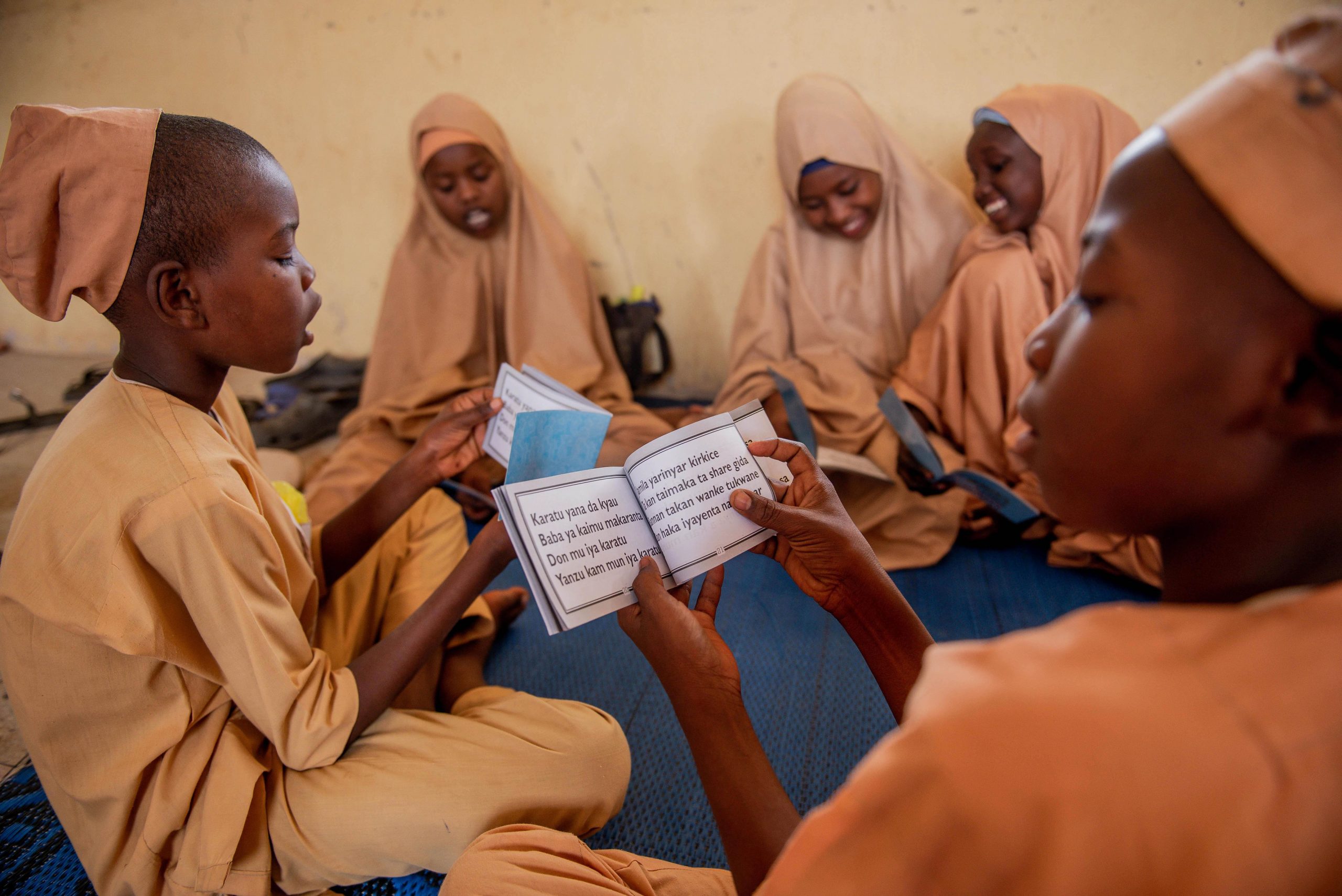
Photo credit: British Council and TaRL Africa
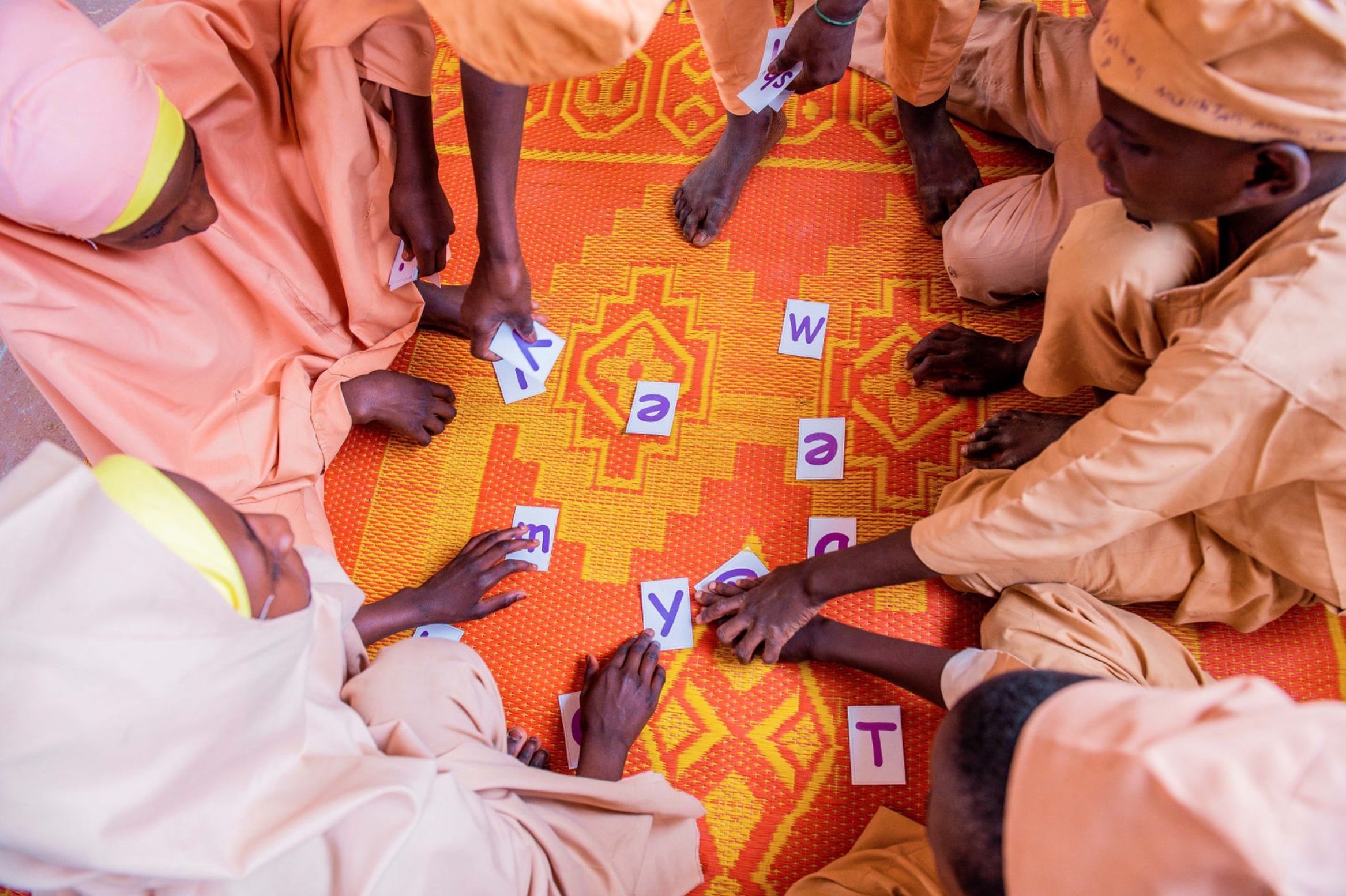
Photo credit: British Council and TaRL Africa
Government Program Highlights
TaRL Africa works deeply and directly with the government in Côte d’Ivoire, Nigeria, and Zambia. We believe that the government is a critical actor in making a significant and sustainable impact.
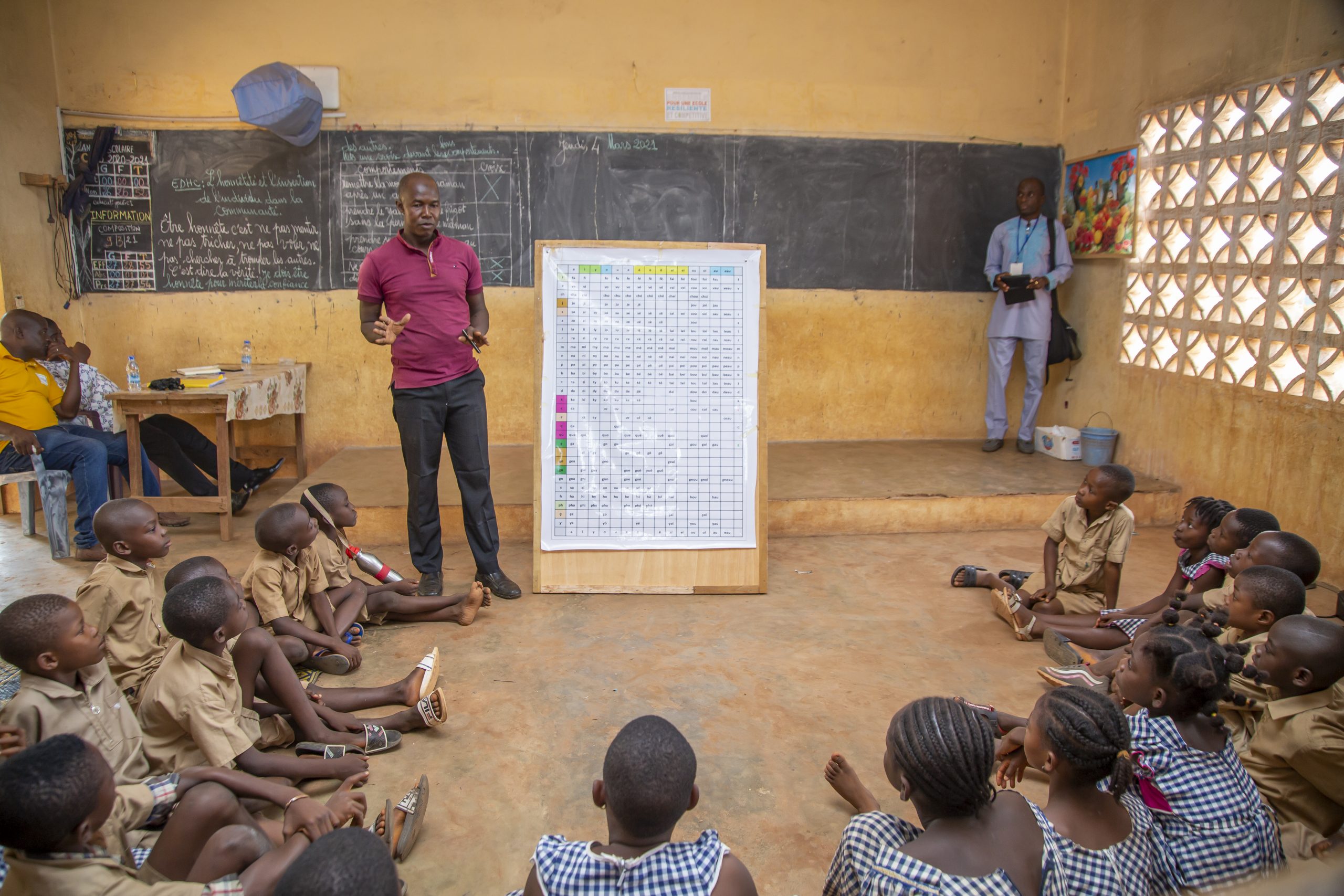
Photo Credit: TaRL Africa
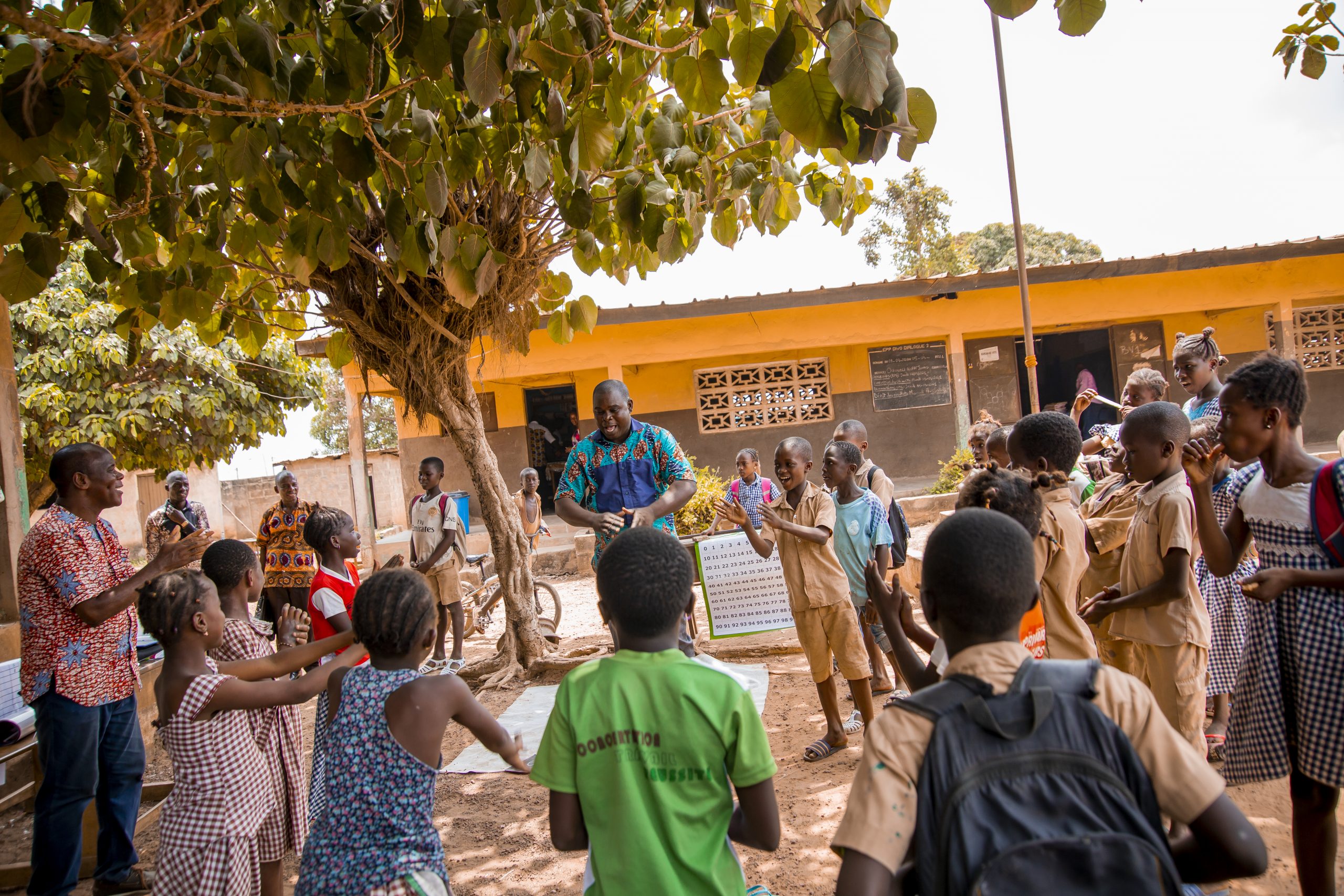
Photo Credit: TaRL Africa
Côte d’Ivoire
In Côte d’Ivoire, TaRL Africa supports the Ministry of National Education and Literacy (MENA) to deliver and grow their TaRL program, Programme d’Enseignement Ciblé (PEC). Children in grades three to six focus on foundational French reading and Math for one and a half hours during the day using TaRL activities.
In 2021-22, PEC expanded to close to 1,000 schools reaching 140,000 children. Data from the 200 schools included in the 2020-21 school year shows significant improvement. At baseline, in the 200 schools, 16% of children could read a simple paragraph in French, which increased to 34% by endline in just 75 days of implementation. In Math, the proportion of children able to do a subtraction problem increased by 24 percentage points to 50% by the endline. With the 2021-22 school year underway, results from the 1,000 schools are expected by June 2022.
Additionally, a series of learning activities have been launched in Côte d’Ivoire in 2021 and are currently rolling out. Under the SEME initiative, a Randomised Controlled Trial (RCT) evaluation of PEC and Cash transfers will aim to understand the impact of the two innovations in isolation and combination on children’s learning. The study is being carried out by academics from multiple US-based universities and local research teams, with financial support from TRECC and CoImpact. Learning labs have also been launched in the country to test innovations aimed to address challenges experienced in multiple country contexts.
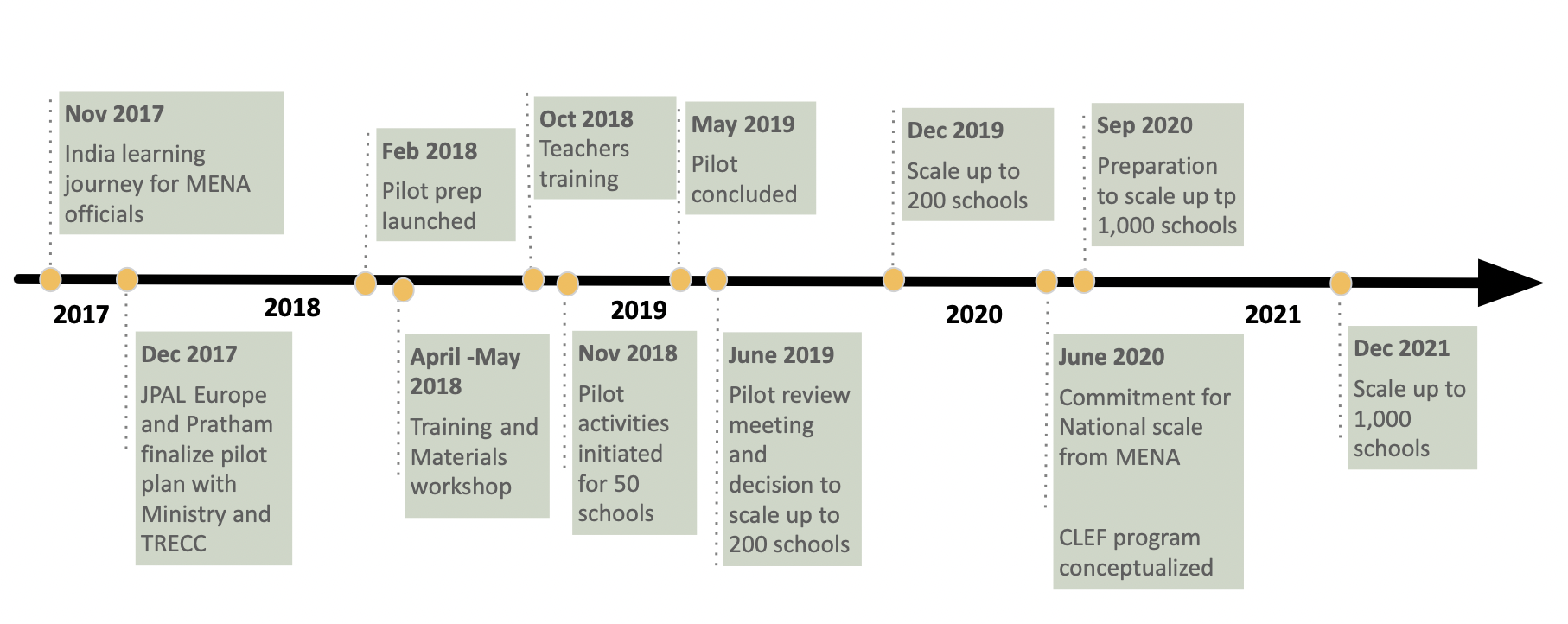
History of PEC in Côte d’Ivoire
Nigeria
Schools reopened in October 2020 after six months of COVID-19 induced school closures. The government and education partners were eager to accelerate children’s learning in 2021. TaRL Africa’s team in Nigeria supports TaRL programming across five states in Nigeria. While there are variations in the design of the programs across the different states, in all states children in either grade three to grade five or grade four to grade six are assessed and grouped by learning level rather than age or grade and focus on foundation reading (in either English or Hausa) and Math for one and a half to two hours a day by engaging in TaRL activities.
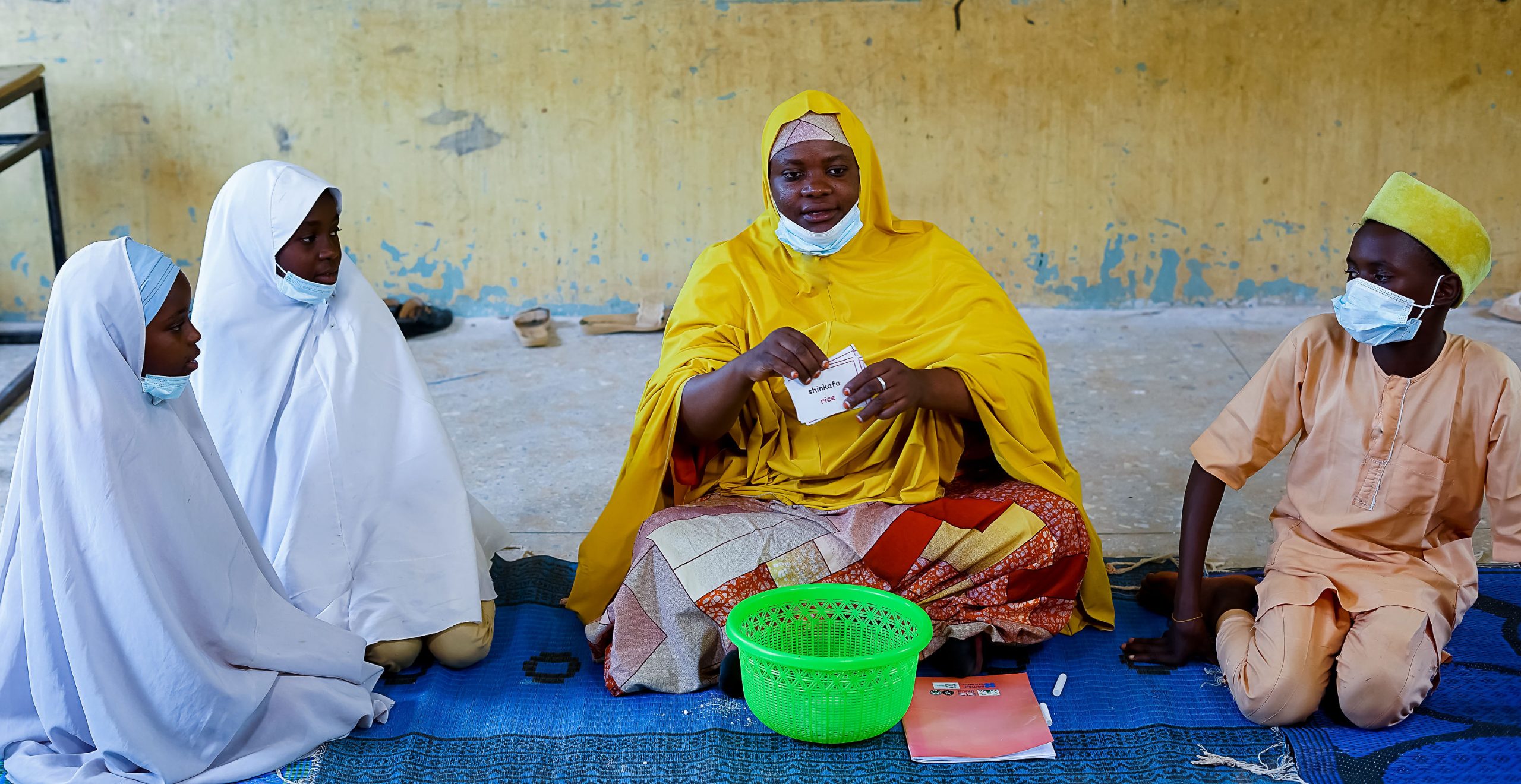
A TaRL class in action. Photo Credit: British Council and TaRL Africa
In Kebbi State, the state government secured federal funding to launch Kebbi Foundational Skills Accelerator (KeFSA), Kebbi’s TaRL program. KeFSA launched in May 2021 in 122 schools reaching approximately 22 000 children. It is the first government-funded TaRL program in Africa. This is a promising signal for the program’s sustainability in the country. Over the pilot course, the proportion of children who could read a basic paragraph in Hausa and do a simple subtraction problem increased by 13 and 14 percentage points, respectively. The Kebbi state government is developing a scale-up plan to reach approximately 500 more schools in the 2022/23 academic year.
In North-East Nigeria, TaRL Africa continues to work with UNICEF and state partners. In September, TaRL programming grew to 279, 104 and 153 schools in Adamawa, Borno, and Yobe, respectively, reaching more than 125,000 children. Based on demand for English in the states, the Language Learning from Familiar to Formal (L2F2) ,a literacy approach in Hausa or Kanuri transitioning to English, is being piloted in all three states. Math will be included as usual.
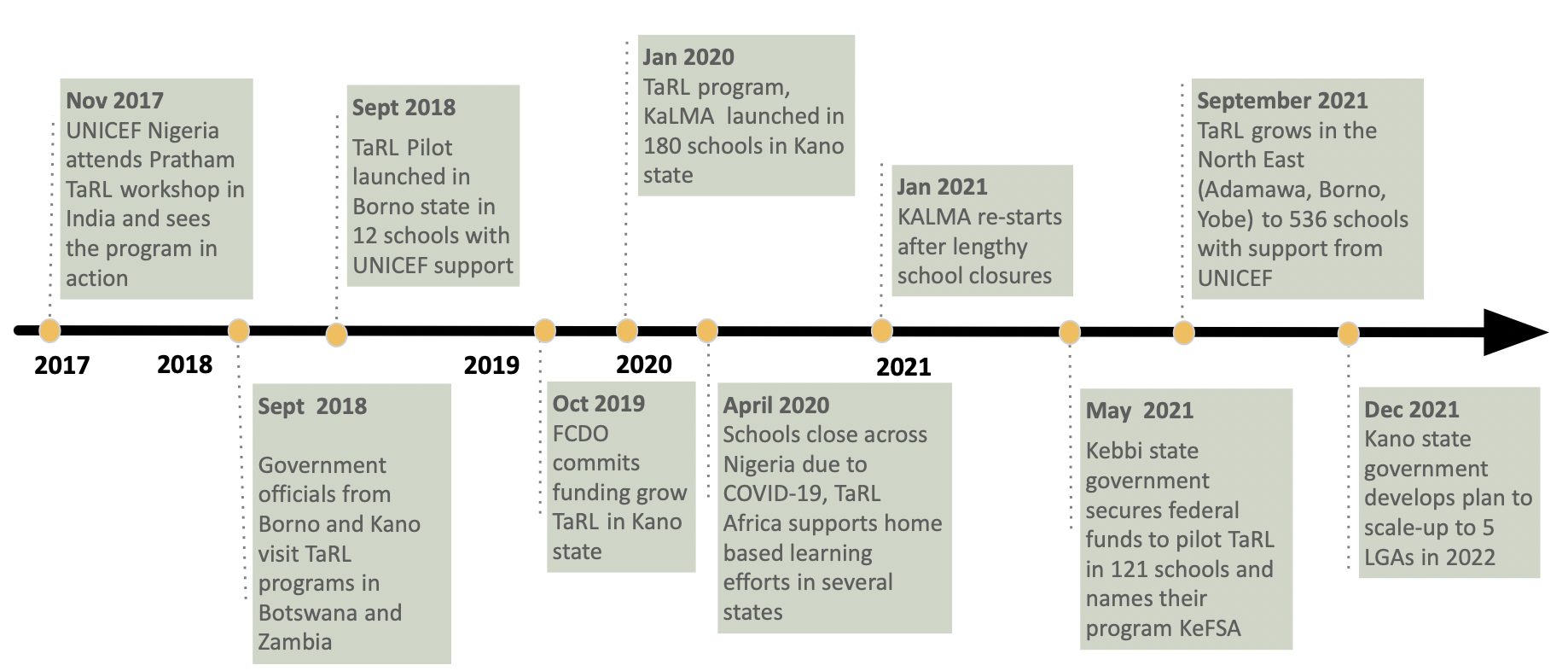
History of TaRL in Nigeria
Zambia
In Zambia, TaRL Africa works hand-in-hand with VVOB – education for development to support the Ministry of General Education (MoGE) to deliver and grow their TaRL program, Catch Up. Catch Up classes take place for an hour a day, when children in grades three-five are grouped by learning level and focus on foundational skills using TaRL local language and Math activities.
From January 2021, Catch Up expanded to 1,900 schools across three provinces, reaching approximately 270,000 children. Learning outcomes improved over the course of the program. For example, between baseline, in January 2021, and Midline, in May 2021, across the Southern and Eastern Provinces, there was an eight percentage point improvement in the proportion of children able to read a simple paragraph and ten percentage point improvement in the proportion of children able to do a subtraction problem. This figure is expected to double by the endline concluding this month, with early results confirming the same.
In addition to the core Catch Up activities, the government launched an emergency response program with support from VVOB and TaRL Africa, which provided accelerated learning support to children in grades one to six. The activities were rolled out with support from the Global Partnership for Education (GPE) COVID-19 emergency fund, managed by UNICEF Zambia. The support covers five provinces and 20 districts. This program reached an additional 800 schools and 250,000 children, in addition to those already covered with the core Catch Up activities. The joint team developed an additional package for grades one and two, to be used specifically for the GPE project and created compressed training packages for provinces, districts, master trainers, headteachers, mentors, and grade teachers.
The continued successes and growth of the Catch Up program complement the growing and lasting enthusiasm of the Zambian government and its ambition to scale up the program nationally. In 2022, Catch Up will grow to at least 900 additional schools reaching 180,000 more children, including launching in two new provinces, with potential for further scale up to three additional provinces.
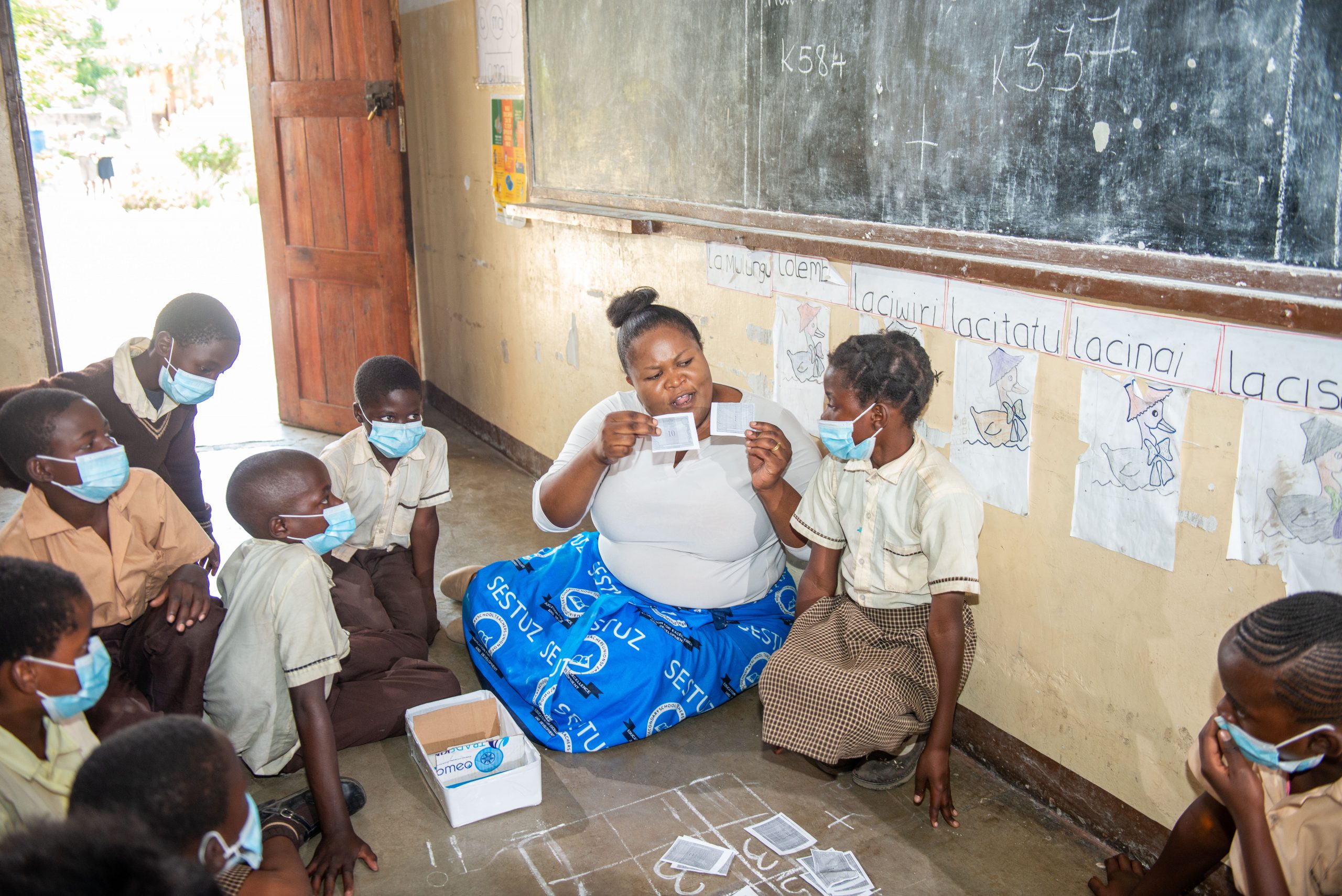
Photo Credit: TaRL Africa and VVOB

Photo Credit: TaRL Africa and VVOB
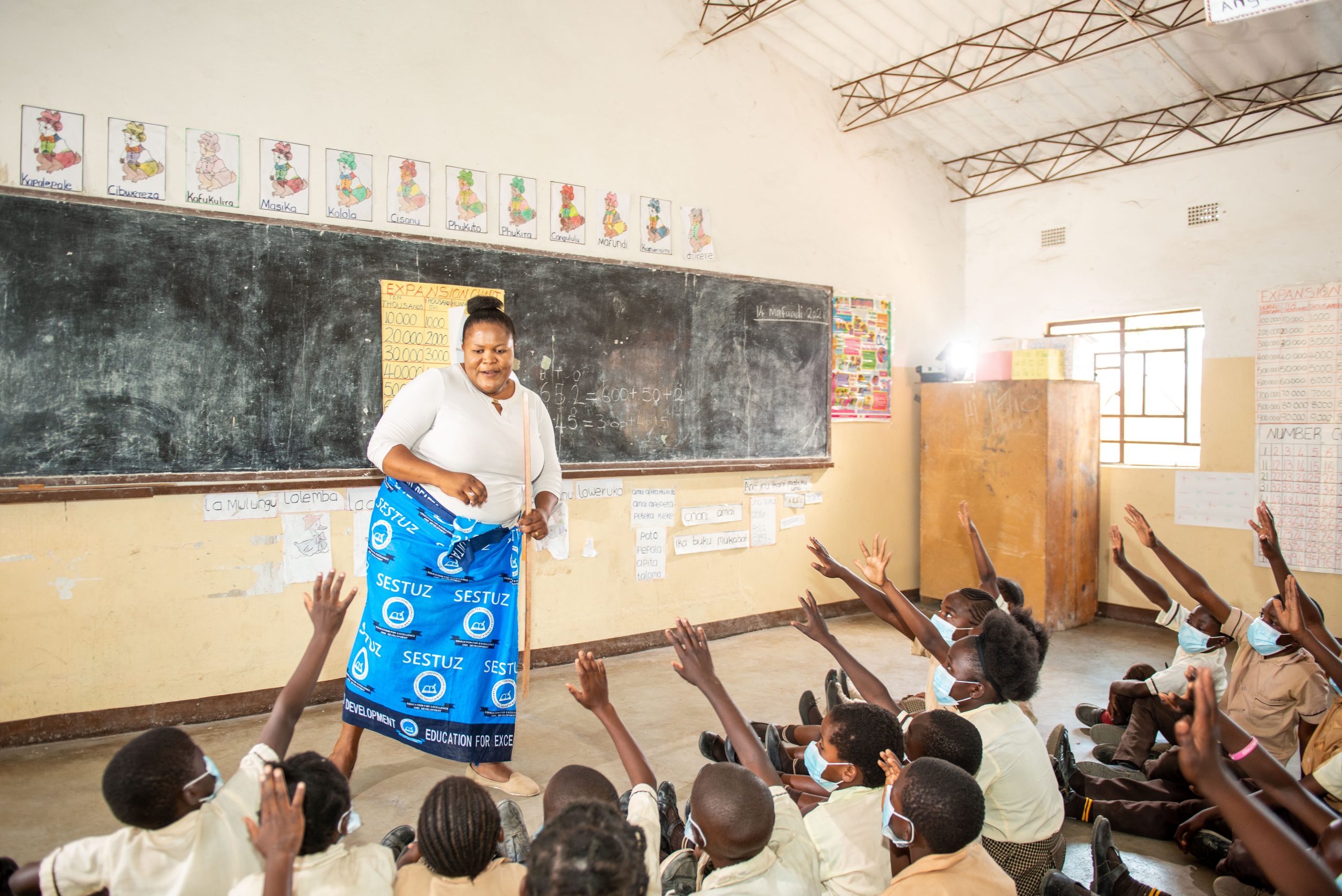
Photo Credit: TaRL Africa and VVOB
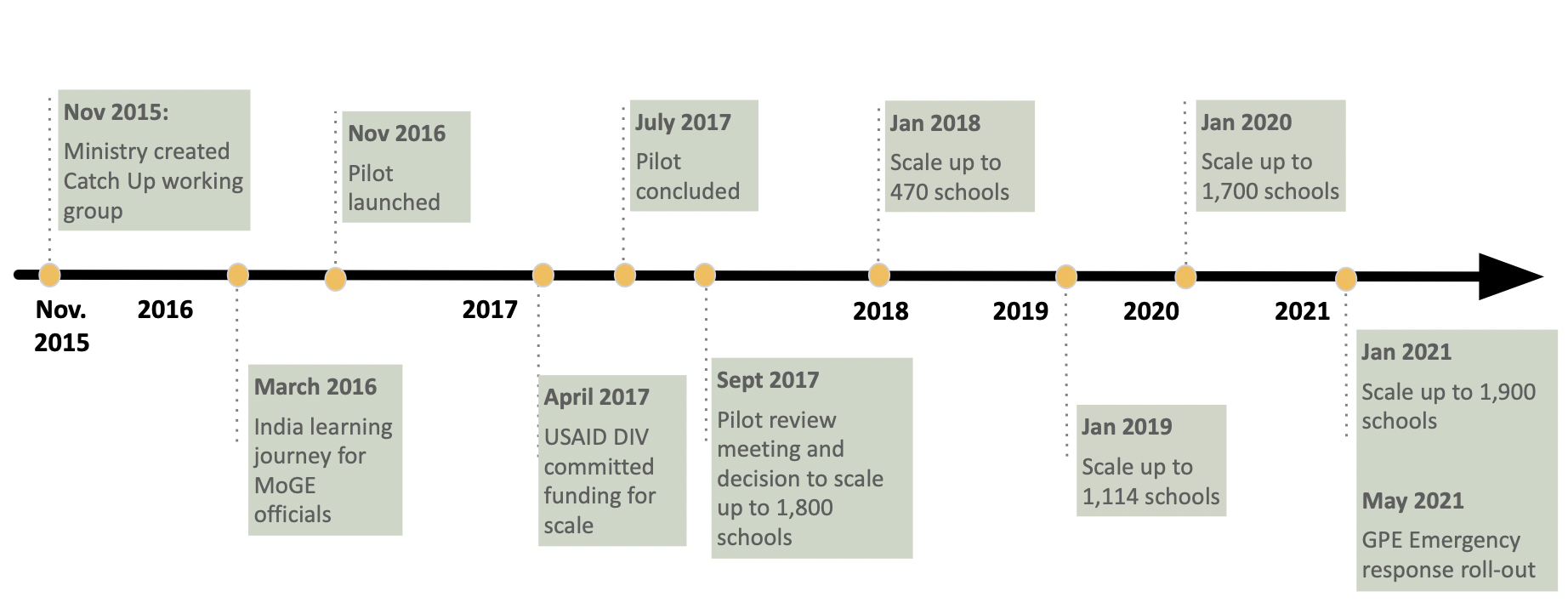
History of Catch Up in Zambia
Children in Zambia share their experiences of the Catch-up or TaRL classes. The classes break free of the “chalk and talk” practices commonly found in primary school classrooms across the world by encouraging the use of engaging, fun, and creative activities focused on building foundational skills.
Partners’ Program Highlights
TaRL Africa supports partners working with the government or the community to deliver TaRL programs. In addition, we connect organizations and create spaces for coordination, problem-solving, and learning. We believe there is great power in collective action and that collaboration is necessary to make meaningful strides to address the learning crisis in Africa.
In 2021, there was a great demand for TaRL Africa support as organizations grappled with how to help children catch up after lengthy school closures. TaRL Africa is working with several partners across the continent to support these efforts. In the section below, we highlight a couple of partner programs.
